In 2019, PETA investigations at Egypt’s top tourist sites, including the Great Pyramid of Giza and Luxor’s royal tombs , documented the appalling abuse of horses and camels forced to haul tourists in carriages or serve as photo props in the blistering heat without food or appropriate shade.
When the first investigation broke, Egypt’s Ministry of Tourism and Antiquities promised to make meaningful changes. Yet when investigators returned years later, in 2023 and 2024, conditions remained the same. Authorities hadn’t even bothered to honor the simplest promises of providing appropriate shade for the desperately hot animals at the pyramids. In correspondence with PETA, a ministry spokesperson admitted that the goal of any improvements was to benefit tourists, not the abused animals.
Please watch the following video in full to gain a thorough understanding of the severity of the widespread abuse of horses and camels in Egypt. Then share it with your friends and family.
UN INT Intro Text w/ Centered Large Responsive Image - *Important Note* You must UNLINK this shared library component before making page-specific customizations.
Horses are forced to carry tourists in scorching temperatures and are routinely whipped as they struggle to do so, even when they’re exhausted. The animals are constantly hungry and tired and are denied veterinary care for wounds and injuries.
PETA investigators went behind the wall of the ticketed tourist area at the pyramids and found dead bodies of horses or camels dumped in the trash every single day. Just steps away from their decaying bodies, malnourished horses were eating food from the piles of trash. On one visit, investigators found a horse who was barely alive and had been left to die in agonizing pain.
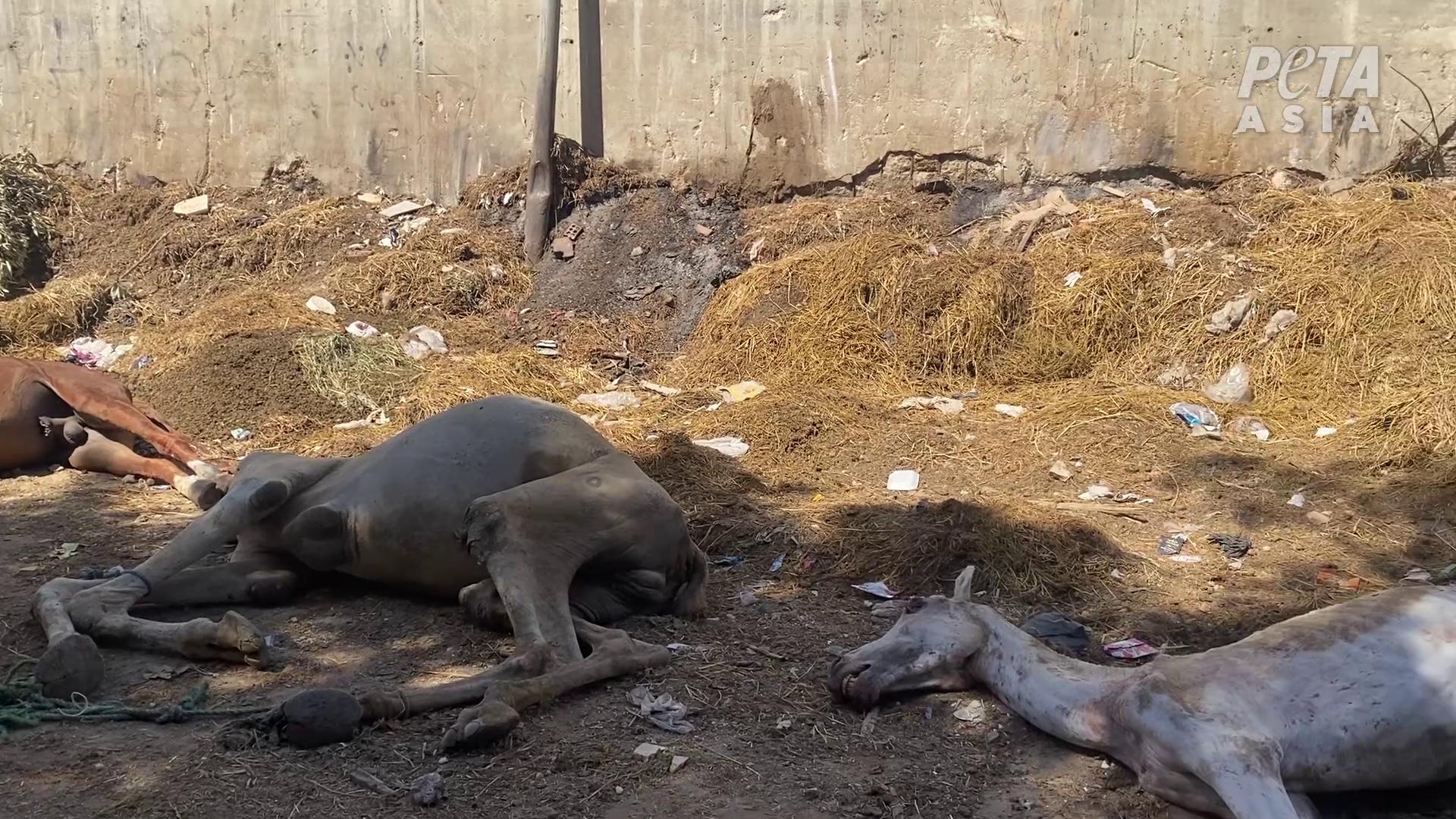
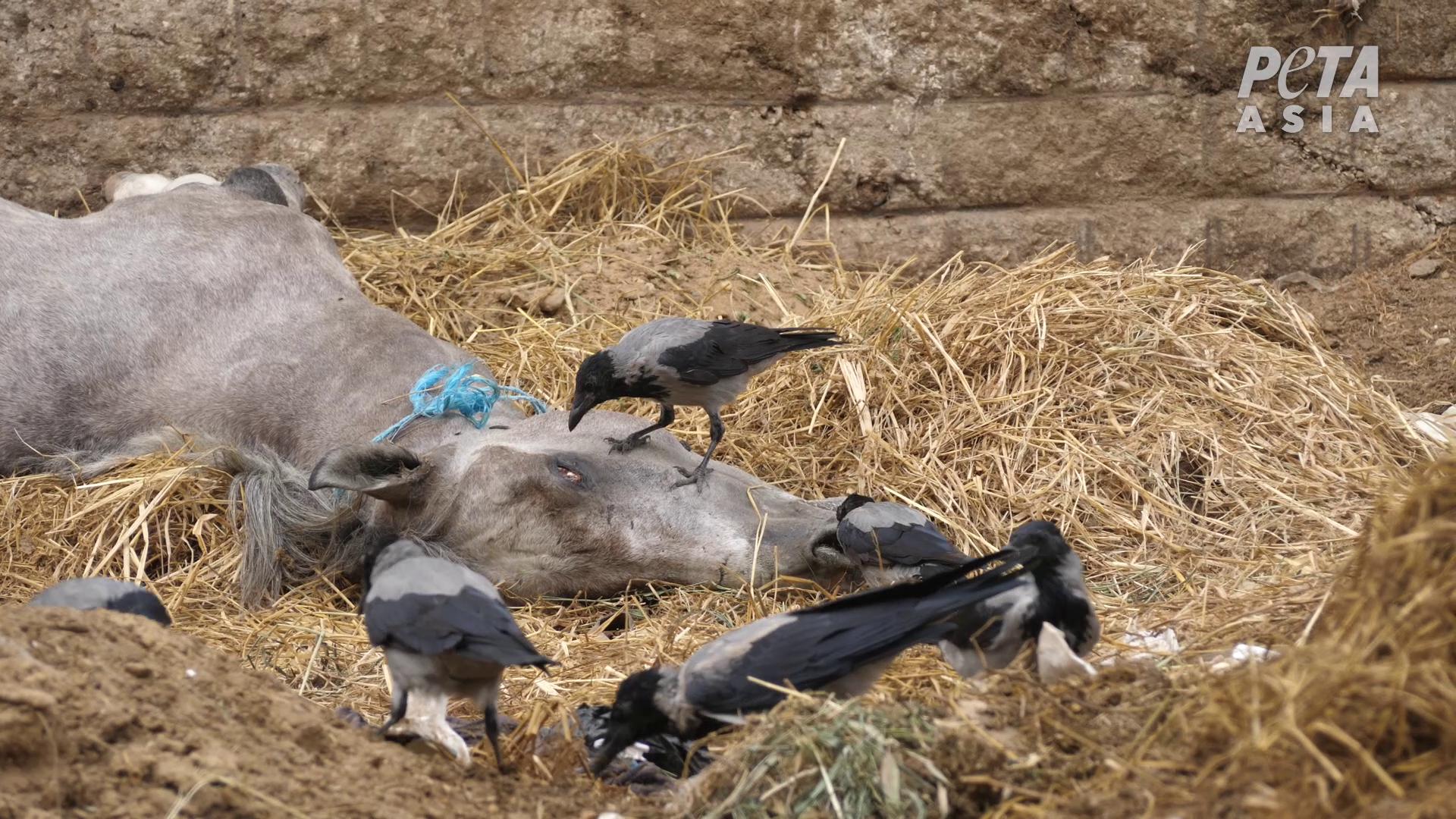
Instead of stopping the shameful abuse, the police and government authorities brazenly cooperate with handlers to intimidate concerned visitors at the tourist sites. On one occasion, the police and a representative from the Ministry of Tourism and Antiquities detained a park visitor who had been taking pictures at the pyramids and demanded that the visitor delete any photos or videos of the camels and horses, falsely claiming that it’s against the law to photograph them. They then wiped and confiscated the visitor’s SD card. While this was happening, horses were being violently whipped around them, but the authorities didn’t care about that.

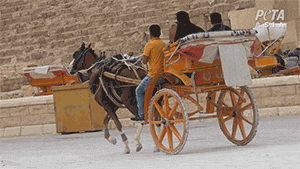
At the notorious Birqash Camel Market, where many camels are sold into the tourism industry to be used as photo props at tourist sites, investigators found that camels are still being abused and that the throats of some had recently been cut. Men assaulted the animals by pushing them and beating them with batons. Traders pulled the animals’ lips and ears, punched them, and prodded their testicles.
Camels from the tourism industry are also sold to slaughterhouses to become slabs of meat. They’re killed right in front of one another and even in front of children. One camel whose throat had been slashed continued to kick for four agonizing minutes, after which another worker hacked at the animal's neck with a machete.
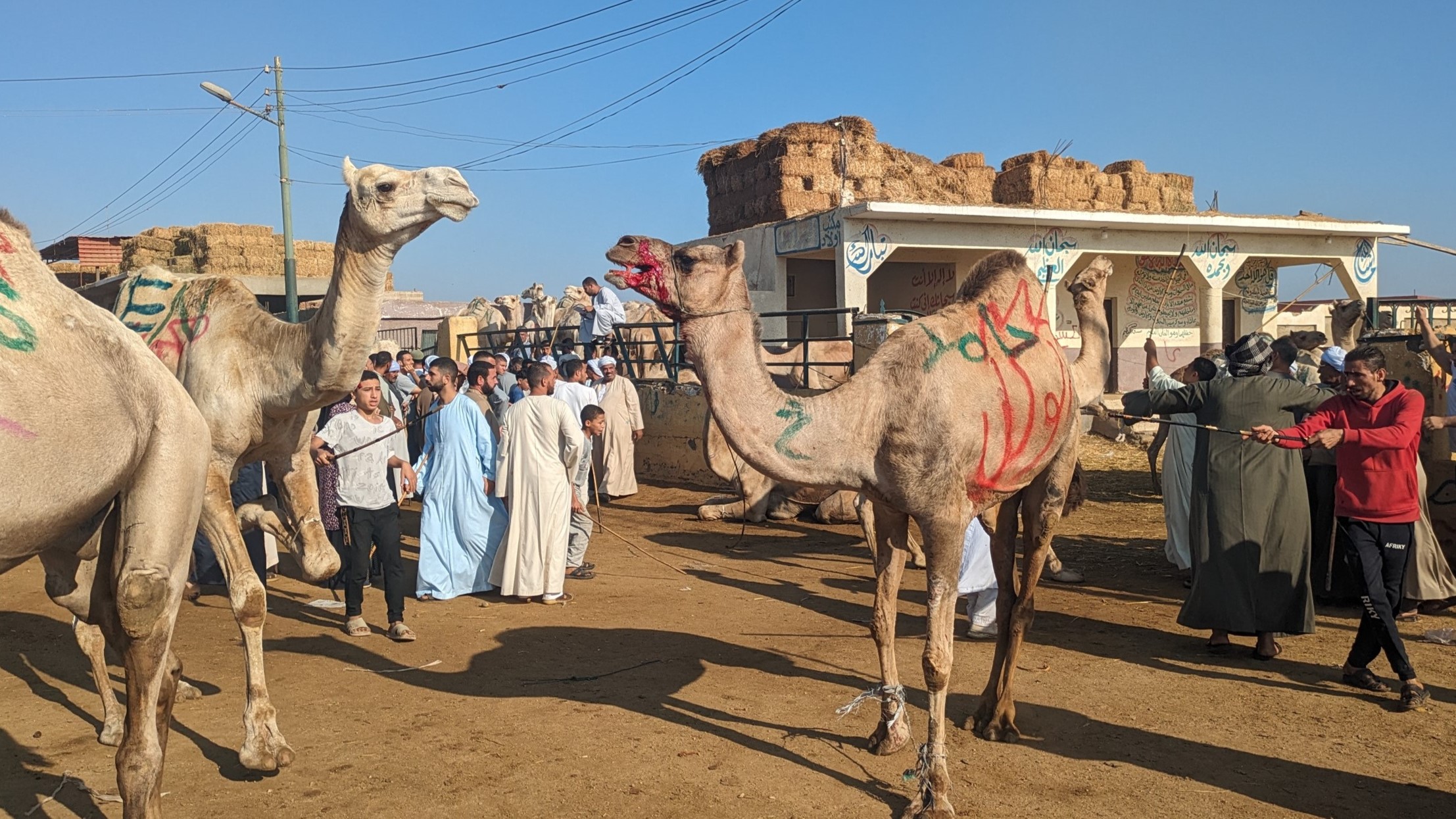

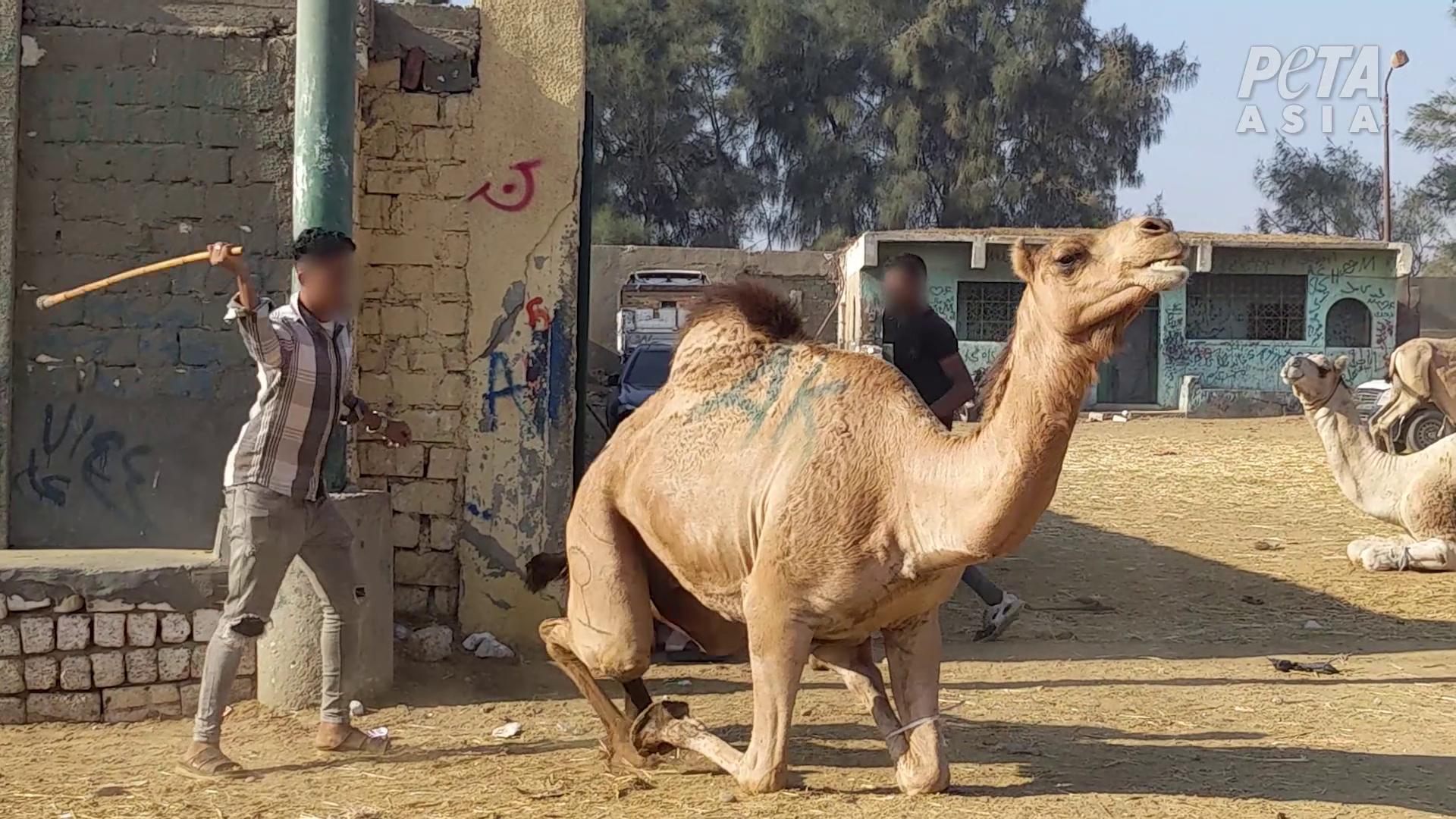
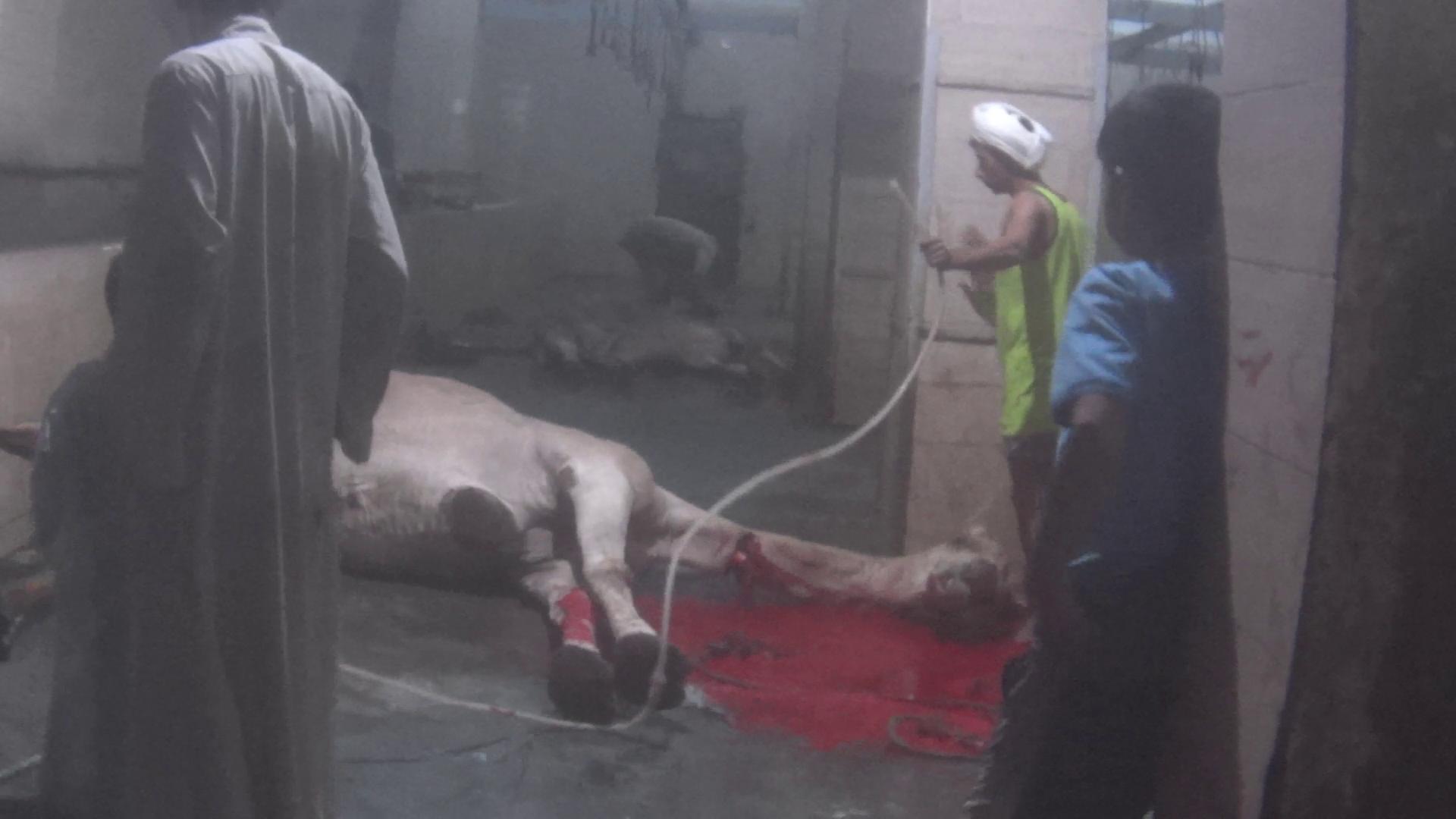
Take Action!
Tourists who pay to take horse or camel rides keep these cruel operations in business. If you’re planning to visit Egypt, don’t force animals to be part of your outing.
It has been years since Egypt’s Ministry of Tourism and Antiquities began promising to make changes for the animals suffering at the pyramids, but absolutely nothing has been done. Please use the form below to urge Egyptian officials to end this cruelty and impose a ban on using horses and camels to entertain visitors at the pyramids and other tourist sites.